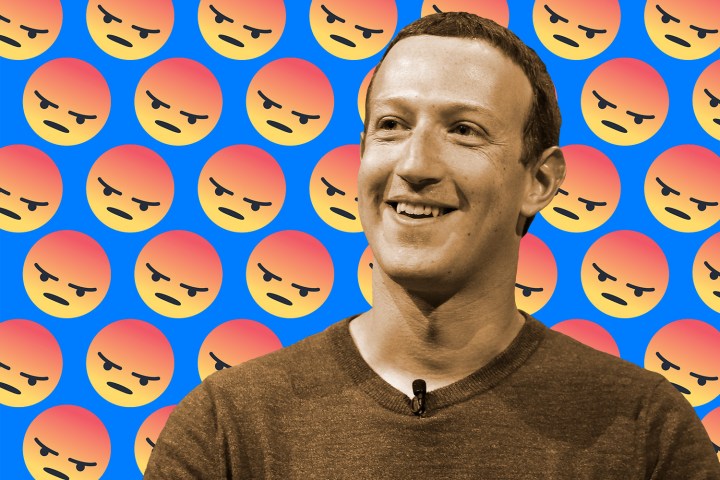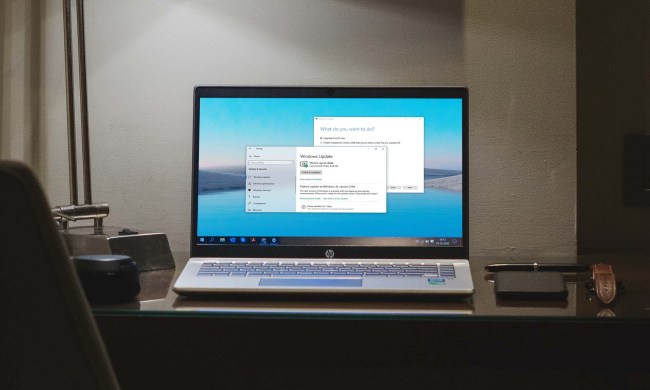
Facebook will pay the Federal Trade Commission a $5 billion fine as part of a settlement over privacy violations announced on Wednesday, but don’t expect the company to meaningfully change its behavior.
While the $5 billion penalty is the largest in the history of the FTC, it’s more of a speeding ticket than a jail sentence for the massive company. Just hours after the fine was announced, the company reported that it had earned $16.6 billion dollars in revenue in the first three months of 2019.
While the FTC is imposing further privacy requirements on Facebook like the establishment of designated compliance officers who will be responsible for a new privacy program, experts say that settlement won’t clean up Facebook’s act anytime soon.
“Facebook breached user privacy, interfered with the sanctity of democratic elections, and makes tens of billions of dollars by reducing users’ privacy and micro-targeting them. A $5 billion fine is not likely to change Facebook’s behavior moving forward,” said Dina Srinivasan, author of an academic paper entitled “The Antitrust Case Against Facebook.”
Srinivasan points to the 2018 Cambridge Analytica scandal as a breach of Facebook’s prior settlement with the FTC back in 2012. If Facebook can go against the FTC’s ruling once, they can do it again, she said.
It’s clear Facebook has massive issues when it comes to user privacy. Wednesday’s FTC settlement also nailed the company on other offenses: the company allowed advertisers to use phone numbers users provided for two-factor authentication and misled 30 million users about their ability to disable a facial recognition tool that identified users in photos.
Jason Kint, the CEO of the trade organization Digital Content Next, said that Facebook’s history proves the social network probably can’t be trusted with user data.
“Other than verbal promises from Facebook, it’s entirely unclear what will prevent this from happening again,” he said.
Kint said that the FTC fine is not a meaningful deterrent, especially after any review of the $100 million settlement between Facebook and the U.S. Securities Exchange Commission (SEC), which was also announced on Wednesday.
According to Kint, key points to look at in this separate agreement is that Facebook users’ personal data was sold to Cambridge Analytica.
Finally. Here in SEC docs is what Facebook has painfully avoided public knowing and press has mostly missed documenting. Facebook data was ****SOLD**** to Cambridge Analytica. Can everyone please now say that Facebook personal data was sold rather than captured, transferred, etc? pic.twitter.com/h9pjSSA6V8
— Jason Kint (@jason_kint) July 24, 2019
The SEC compliant specifically states, “In June 2016, the researcher told Facebook that, in addition to transferring Cambridge Analytica personality profiles for approximately 30 million of its users, he had also, for those same users, sold Cambridge a substantial quantity of the underlying Facebook data from which he had derived those profiles.”
Another interesting piece of the SEC compliant states that Facebook lied to reporters about the Cambridge Analytical scandal, falsely claiming that “the company found no evidence of wrongdoing.”
Between both settlements, it’s clear that Facebook has a problem abiding by the federal government’s rules, and even with a combined $5.1 billion in fines, Kint said it’s still not enough.
“At the very least, the FTC should have more tightly restricted data collection and use to more closely align with consumer expectations which would minimize their current practice of mining of our lives across their different apps and the web,” he said.
Government officials have also chimed in on Twitter. Democratic FTC Commissioner Rohit Chopra voted no on the settlement and said it gave Facebook reason to celebrate. Facebook relies on your data to make money, he argued — it’s part of their business model.
Here’s the bottom line: Facebook’s flagrant violations were a direct result of their business model of mass surveillance and manipulation, and this action blesses this model. The settlement does not fix this problem. It now goes to court for approval.
— Rohit Chopra (@chopracfpb) July 24, 2019
Chopra added that no senior Facebook executives — including CEO Mark Zuckerberg and COO Sheryl Sandberg — would be held accountable for privacy violations as part of the settlement.
Presidential candidate Sen. Elizabeth Warren (D-MA) added to Chopra’s comments on Twitter saying that the settlement was a “joke.”
We already knew that the @FTC’s $5 billion settlement with @facebook is a drop-in-the-bucket penalty. The fine print proves that it’s a joke. https://t.co/UqgzZBaiZe
— Elizabeth Warren (@SenWarren) July 24, 2019
We reached out to Facebook for comment but have not heard back, but Zuckerberg told employees Wednesday that the settlement would mean big changes for the company:
“We’re going to change the way that we operate across the whole company, from the leadership down and the ground up. We’re going to change how we build products. And if we don’t, then we’re going to be held accountable for it.”



